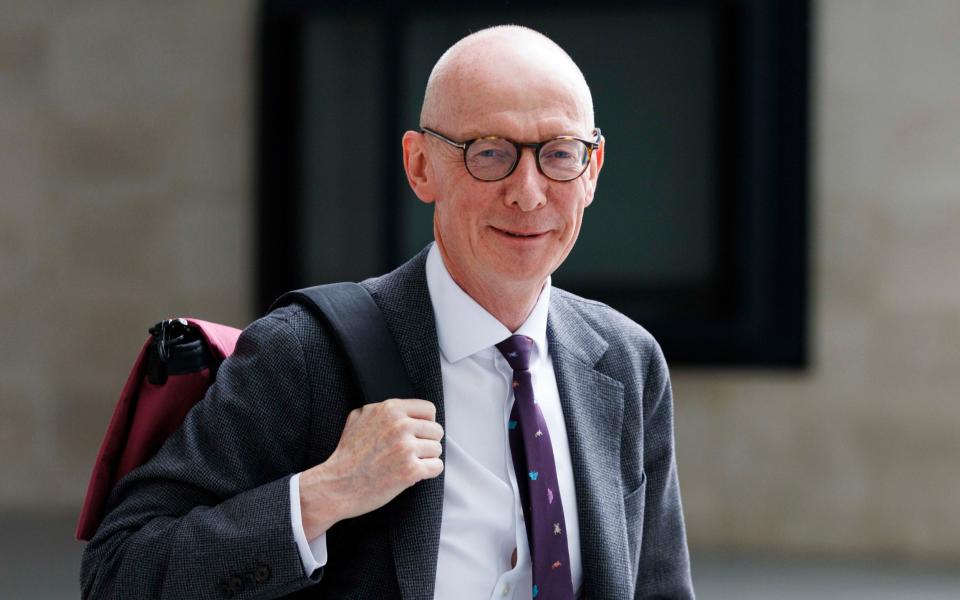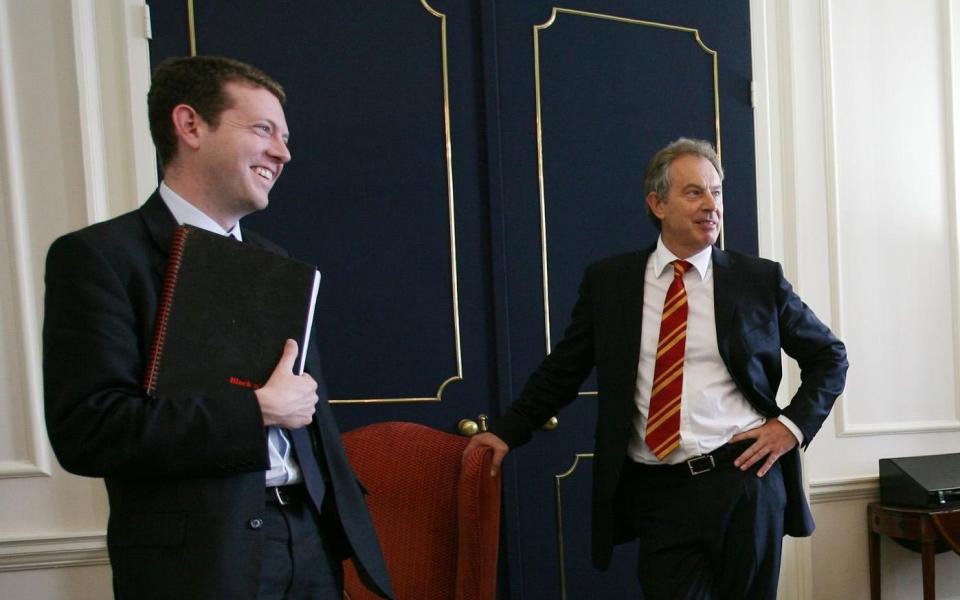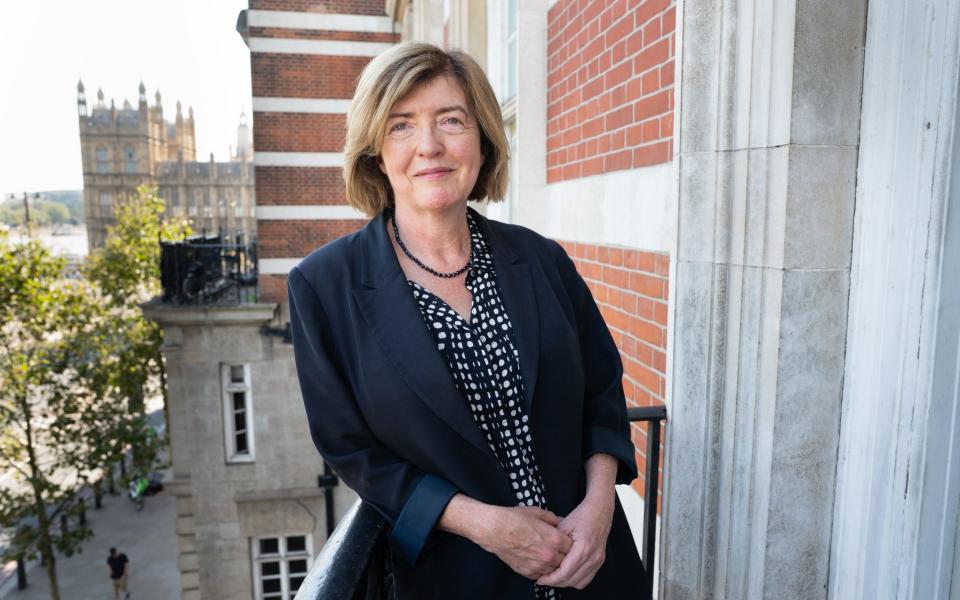Every prime minister needs someone they can trust to turn their ideas into reality. Margaret Thatcher had Lord Wolfson, Boris Johnson had Dominic Cummings and in Sir Keir Starmer’s case, the hub around which his Downing Street operation will turn is Sue Gray.
Never before has a No 10 chief of staff started the job with such a high public profile, and Ms Gray will be under more pressure to deliver from day one than any of her predecessors.
The woman who conducted the Partygate investigation in her previous job as a civil servant is deeply uncomfortable with the name recognition that brought her, and veterans of previous regimes believe that makes her highly vulnerable if Sir Keir’s premiership starts to veer off track and he is looking for a scapegoat.
At the age of 66 though, Ms Gray has more experience of government than anyone else on Sir Keir’s team, which is why he was prepared to risk controversy by hiring her to work for him, which raised questions about the neutrality of the woman whose Partygate inquiry helped topple Mr Johnson.
Unlike Dominic Cummings, de facto chief of staff to Mr Johnson, who became famous (or notorious) after entering Downing Street, Ms Gray is already well known, meaning she will be in the spotlight from day one in a way that none of her predecessors were.
Her job will be to liaise with Government departments, ministers and staff to make sure that the Prime Minister’s instructions and policy programmes are being put into action, and the respect in which she is held by senior civil servants will certainly help with that.
However, others who have been through the Downing Street mincing machine believe her No 10 career carries a short life expectancy.
One former No 10 aide said: “She is clever and she will get on with the civil servants but she is not a politician. What you have to understand is that prime ministers are constantly faced with tough, 50/50 decisions and a lot of them are swayed by the politics of the situation.
“Unless you are a political animal, which she isn’t, you might not grasp the politics and you are going to be blamed when things go wrong.
“I think she was unwise to take the job because she is going to be too much of a target now. She will fall victim to all the Rasputins.”
It is certainly true that if Sir Keir feels he needs a high profile scapegoat, Ms Gray would fit the bill, enabling him to protect ministers who may be more valuable to him, even if they are equally culpable.
Like Dominic Cummings before her, Ms Gray also risks becoming the story in a time of crisis, a fate which is spared those who people have never heard of.
They include Morgan McSweeney, Labour’s campaign manager and Sir Keir’s most trusted aide, who is expected to be given a job in Downing Street, perhaps as chief adviser, but who is unknown to the public at large. Unlike Ms Gray, he has party politics pumping through his veins, as does Pat McFadden, Labour’s national campaign coordinator (a confusingly similar title to Mr McSweeney’s) and the shadow Chancellor of the Duchy of Lancaster.
Mr McFadden, who was re-elected in Wolverhampton South East, is likely to be given a senior Cabinet role, and will be to Sir Keir what Peter (now Lord) Mandelson was to Sir Tony Blair. Other key aides in a Starmer Downing Street would include Matthew Doyle, who as communications chief would do the job once filled by Alastair Campbell, and policy advisers Peter Hyman and Deborah Mattinson.
Many of them will, strictly speaking, answer to Sue Gray, who only has a few months of working for a political party under her belt, compared with the years that others have put in.
The words that come most quickly to the minds of colleagues who are asked to describe her include tough, professional and diligent, which tells us little we could not have guessed. But dig a little deeper and it becomes clear that Sue Gray is a long way removed from the stereotype of a stiff-necked career mandarin.
For starters, she has repeatedly had to deny being a former spy for MI5. Her husband is a country music singer who still goes on tour, and during a break from the civil service Ms Gray and her husband ran a pub.

“She isn’t dry like some Whitehall folk,” says one former colleague. “She can see the funny side of things and likes a joke.
“She is fundamentally human and cares a lot about people – even when she was investigating Partygate she would have in mind the effect it was going to have on the people who were involved.
“The thing that will be most valuable to Keir Starmer though is that she will offer her boss a blunt, honest opinion about things. She will tell the unvarnished truth rather than sitting on the fence or trying to sugar coat anything, and in certain situations that hasn’t made her popular with her peers.”
Ms Gray became a household name because of her role investigating Partygate, something that landed in her lap after the Cabinet Secretary Simon Case, who started the investigation, had to recuse himself when his own behaviour came under scrutiny.
At the time she was second permanent secretary at the Cabinet Office, but had experience of high profile investigations from a previous role as the Cabinet Office’s director general of propriety and ethics.
The nation hung on her every move as she interviewed witnesses and produced an interim and then a final report, which did not result in the immediate resignation of Boris Johnson but did much to weaken his grip on power, and which reverberates through the public perception of “Tory sleaze” that has dogged Rishi Sunak in the election campaign.
Ms Gray hated the attention. One former colleague recalled that during an all-staff Zoom meeting in the wake of Partygate she described how she had been watching a rugby match on television when one of the commentators said of an on-field controversy “we’re going to need Sue Gray to sort that one out”.
“She said it was shocking when you realise your name is public currency like that,” said the source, “and it made her feel vulnerable.”
She has faced far worse dangers in her life though. Having gone into the civil service straight from school in the 1970s, she met and married Bill Conlon, a country music singer from Northern Ireland, in the 1980s and ditched her job to run a pub with her new husband in the border town of Newry, south of Belfast, at the height of The Troubles.
The Belfast Telegraph discovered that one night she had a staff member who needed to get home so she closed The Cove pub early and drove her employee home to South Armagh.
As she drove back to Newry she was flagged down by a group of men she mistook for soldiers, but who turned out to be from a paramilitary organisation.
One of them said to her: “We want the car, get out.” She bluntly refused and said: “No.”
The situation threatened to escalate further when one of the would-be carjackers said: “Oh, you’re ****ing English as well?”
She was saved when another man said: “That’s Sue Gray from The Cove, let her go on.”
Two or three nights later she was serving behind the bar when a well-dressed man at the end of the bar nodded to her and said: “Sue, did you get home alright the other night?”
When she returned to Northern Ireland decades later as a civil servant, the BBC’s Northern Ireland political correspondent Gareth Gordon said to her: “Someone put it to me that you were once a spy.” She replied: “I think if I was a spy, I’d be a pretty poor spy!”

It is easy to see why the idea of an English civil servant, finding herself in a border town pub in the Troubles, being asked to report back any intelligence she picked up to MI5 is a difficult one to resist, and Sir Keir Starmer’s biographer Tom Baldwin revisited the subject when he was writing his book on the Labour leader.
She told him: “I’m definitely not a spy and no, I never have been.”
Ms Gray’s parents moved to London from Ireland in the 1950s and she was born in the capital, where her father Leo worked as a furniture salesman and her mother a barmaid.
Mr Conlon still tours as a country singer, and has worked with such famous names as Willie Nelson. His contemporaries are so impressed by his voice that he has been described as “the singer’s singer”.
The couple have two sons, one of whom, Liam Conlon, is chairman of the Labour Party Irish Society and has just been elected as the new MP for Beckenham and Penge.
Having moved back to London by 1987, Ms Gray worked at several Government departments before joining the Cabinet Office in 1990.
As director general of the propriety and ethics team she conducted the Cabinet office inquiry into the behaviour of Andrew Mitchell over “plebgate”, which led to his resignation as chief whip, and also investigated Damian Green over claims of sexual harassment and using office computers to view pornography. Mr Green resigned as first secretary of state, apologising for his behaviour towards the woman in question but claiming the pornography allegations were a political smear.
In 2018 Ms Gray transferred to the Northern Ireland Civil Service as Permanent secretary of the Department of Finance in the Northern Ireland Executive. Then in 2021 she returned to Whitehall to become Second Permanent Secretary in the Cabinet Office. She reported to the Chancellor of the Duchy of Lancaster, who at the time was Michael Gove.
She resigned from the Civil Service in March 2023 after being approached by Sir Keir to work for him, and was found by the Cabinet Office to have broken the Civil Service code by holding talks about the job while she was still a civil servant, but was allowed to take up the role last September.
One former Downing Street staffer who worked with Ms Gray said she never betrayed any party political leanings.
“It was never obvious that she was a Labour supporter,” says the source. “She is someone who can knock heads together and get things done and she will be a huge asset to Keir Starmer.
“I think she will be motivated by a need for good government, and because she is a grown-up and is respected in Whitehall she will find it easier to get things moving.
“I’m quite reassured that she is there to be honest because she will be a counterweight to any overly partisan lefties. She will steer them to more sensible positions.”
Starmer’s other key lieutenants
Pat McFadden

59-year-old McFadden, who was Labour’s national campaign coordinator and a key member of Starmer’s front bench, is a Glaswegian of Irish heritage, and worked as John Smith’s speechwriter and then Sir Tony Blair’s political secretary before being elected as MP for Wolverhampton South East in 2005. He worked with Lord Mandelson and Alastair Campbell on Labour’s landslide victory in 1997. Mandelson has described him as “a walking encyclopedia of political and policy knowledge”.
An arch critic of Jeremy Corbyn, he backed Owen Smith in the attempted leadership coup of 2016 and is the wise old head to McSweeney’s more aggressive stance.
His wife Marianna, known as Maz, is McSweeney’s deputy.
Matthew Doyle

A former Downing Street adviser to Tony Blair, Doyle seemed to have left politics behind when he parted company with the former Prime Minister in 2012, before returning as Labour’s director of communications.
He set up his own consultancy, MLD Advisory, and spent nine years building up the business before an unexpected return as Starmer’s equivalent of Alastair Campbell in 2021.
Ravinder Athwal
A Cambridge graduate in economics, Athwal held a civil service role at the Treasury as head of growth strategy under Rishi Sunak, before being hired by Starmer as an economic adviser.
He rose to become Labour director of policy and was relied on heavily to put together the party’s election manifesto.
Morgan McSweeney

The most powerful non-elected official in the Labour Party, Morgan McSweeney, 47, moved to London from his native County Cork when he was 17 and Labour Party in 1997. He worked as an intern for Lord Mandelson, cutting his teeth as a campaigner in the 2005 general election.
In 2017 he became director of the think tank Labour Together, which was instrumental in installing Sir Keir Starmer as Jeremy Corbyn’s replacement. As Labour’s director of campaigns, he was Starmer’s most trusted adviser going into the election. Read more about McSweeney’s rise to power here:
EMEA Tribune is not involved in this news article, it is taken from our partners and or from the News Agencies. Copyright and Credit go to the News Agencies, email news@emeatribune.com Follow our WhatsApp verified Channel





